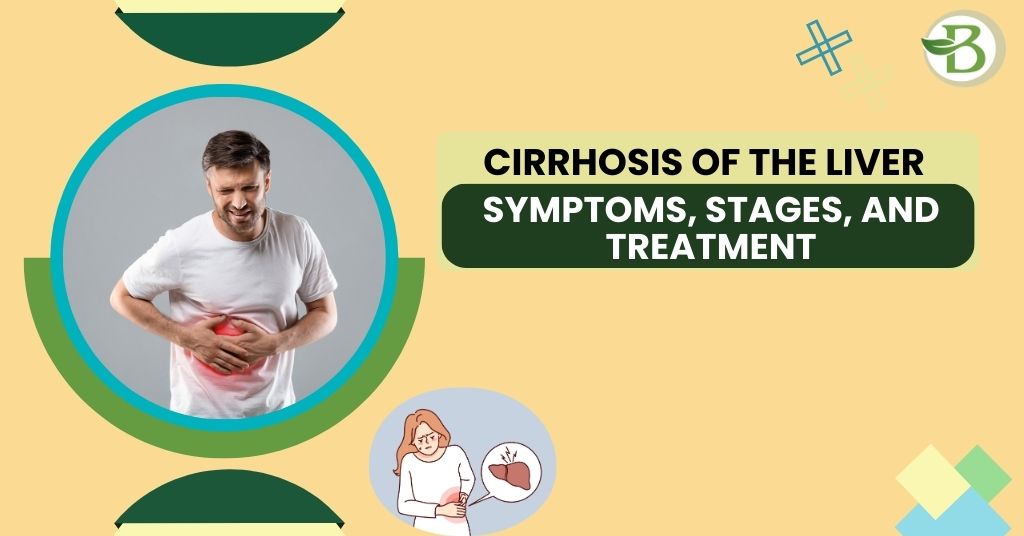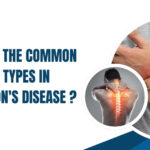Understanding Liver
The liver serves as the body’s main filter, cleansing your blood, breaking down toxins into waste, and metabolizing medications and nutrients to give your body some of its most vital proteins. It is crucial to maintain the health of your liver and to avoid overindulging because it is an essential component of the body’s overall functioning. The liver disease progresses through several stages: hepatitis, grade 1 fatty liver, fibrosis, cirrhosis, and liver failure. In this blog, we will discuss liver cirrhosis in particular, its various symptoms, types, and the homeopathic natural treatment.
What Is Liver Cirrhosis?
Cirrhosis of the liver is the last stage of liver disease, wherein the healthy liver tissues are gradually being replaced with scar tissue. Untreated inflammation of the liver, often referred to as hepatitis, leads to this condition. During persistent inflammation, the liver attempts to repair itself by forming scar tissue. But excessive scar tissue formation prevents the liver from working efficiently. If left untreated, it may lead to an end-stage of liver disease or liver failure. Before learning about the various types of liver cirrhosis, let’s first understand the signs and symptoms in order to identify the development of the disease early.
Liver Cirrhosis Symptoms
Depending on the severity and advancement of the condition, the signs and symptoms vary from person to person. Sometimes, you may not have symptoms of liver cirrhosis during an early stage, but these become more recognizable as the functioning declines gradually.
- Weakness and fatigue: A constant feeling of fatigue and tiredness is a common symptom of liver cirrhosis. The liver struggles to store and release energy when its functioning is compromised.
- Jaundice: Commonly characterized by yellowing of the skin and eyes, along with darkened urine. Jaundice usually develops when the liver is unable to properly process a waste product called bilirubin. These are a few of the critical signs indicating that the liver’s functioning is affected.
- Swelling in the abdomen: Fluid accumulation in the abdomen, during the progression of cirrhosis, may cause discomfort and excessive swelling in the abdomen. Also known as ascites, this medical condition requires immediate medical attention in order to prevent further complications.
- Easy bruising and bleeding: An advanced stage of cirrhosis also affects the liver’s ability to produce clotting factors. It can lead to easy bruising, excessive bleeding, and sometimes even bleeding gums.
- Perplexity of mind and changes in personality: Hepatic encephalopathy is a medical condition often associated with the functioning of the brain. These symptoms include confusion, forgetfulness, mood swings, etc, and should not be ignored and require urgent medical intervention.
- Unintentional Weight Loss and Decreased Appetite: Liver cirrhosis may lead to a diminished appetite and unintentional weight loss. The compromised liver affects metabolism and nutrient absorption, leading to insufficient nourishment and subsequent weight loss.
What Are The Four Stages Of Cirrhosis Of The Liver?
Cirrhosis occurs when damaged (fibrotic) tissue replaces healthy tissue. The liver’s capacity to carry out its vital tasks, such as blood detoxification, bile production for digestion, and energy storage, is hampered by this scarring. Hepatic cirrhosis is sometimes referred to as a silent disease in its early stages since it can advance considerably before any symptoms become apparent. This emphasizes how critical it is to identify the illness and seek treatment as soon as possible to stop additional harm.
Recognizing the liver cirrhosis stages is necessary for understanding the disease’s progression.
Stage 1: Compensated Liver Cirrhosis
At this early stage, the liver is still functioning normally, and there is little scarring. At this point, the majority of people are still asymptomatic, which means they may not be aware that they have cirrhosis. However, internal damage has begun, and abnormal liver enzyme levels may be found by standard blood tests or health examinations. Further advancement can often be delayed or stopped with appropriate lifestyle modifications and treatment of the underlying cause.
Stage 2: Decompensated Cirrhosis
At this point, liver damage starts to show itself as observable symptoms, including mild edema, constant tiredness, and intermittent discomfort in the stomach. Complications are more likely to occur, especially the formation of varices (enlarged veins) in the stomach or oesophagus. Internal bleeding could result from the rupture of these varices. In order to control symptoms and prevent additional problems, early detection and appropriate medical care are essential.
Stage 3: Advanced Cirrhosis
Excessive scarring experienced in this stage of cirrhosis adversely affects the functioning of the liver. Symptoms include jaundice (yellowing of the skin and eyes), abdominal swelling primarily caused by fluid buildup(ascites), and forgetfulness or a sense of confusion, caused by toxin buildup in the brain(hepatic encephalopathy). At this stage of the damage, life-threatening complications, like infections and bleeding, are high. Constant medical supervision and proper medical treatment are essential at this stage to maintain a quality of life.
Stage 4: End-stage Liver Disease
The last stage denotes total liver failure, in which the liver is unable to carry out its vital tasks. Debilitating symptoms such as acute jaundice, unmanageable ascites, and deteriorating hepatic encephalopathy are experienced by individuals. Survival rates typically decline in the absence of a proper homeopathic treatment. Early diagnosis and treatment are essential for the best results.
Homeopathic Treatment For Liver Cirrhosis
If you are looking for the best treatment for liver cirrhosis, then look no further than Bharat Homeopathy! With an excellent reputation and a team of top liver health doctors, Bharat Homeopathy is a perfect choice.
Bharat Homeopathy, one of the most well-known liver health homeopathic hospitals in Gurugram, treats liver failure without surgery. The qualified homeopathic liver specialists and experts. These work through a comprehensive, patient-oriented, natural, side-effect-free approach, ensuring everyone receives a customized treatment plan based on their symptoms and overall health & well-being.
Bharat Homeopathy’s experts integrate traditional liver treatment practices into the homeopathic regimen to develop a unique, comprehensive treatment methodology that doesn’t require a transplant in the event of liver failure. A comprehensive evaluation of the patient’s medical history, environmental conditions, and other lifestyle factors is required before devising a tailored routine.
Homeopathic medicines have been found to hold immense potential to improve the overall quality of life of patients by addressing the disease from its root cause instead of just treating the symptoms. Homeopathic medicines offer an alternative treatment approach that helps in providing a liver cirrhosis cure through the usage of natural herbal medicines, in tandem with certain dietary adjustments and lifestyle remedies for liver cirrhosis. For expert homeopathic advice along with a supplementary dietary routine and remedial measures, you may contact our experts online/offline.


